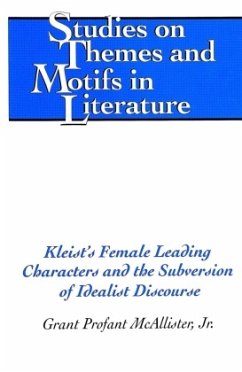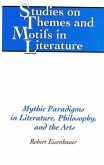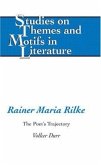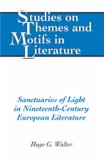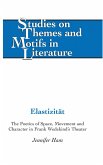Heinrich von Kleist's problematic relationship with the philosophy and the aesthetics of idealism informs his parodic, rebellious, and destructive oeuvre. This book focuses on this relationship and examines Kleist's female leading characters and their role as amorphous ciphers for his own subversive aesthetic theory. Through parody these characters call into question idealist philosophy regarding truth, knowledge, and gender, and offer a theory of aesthetic representation that replaces traditional binary oppositions with pluralities and nonclosure. Nietzsche may have opened the door to postmodernism; however, Kleist unlocked it with four cunning female voices. This is the first book in Kleist scholarship to focus solely on Kleist's female leading figures and their symbolic role as both character and literary theory - a theory anticipating Derridean deconstruction.
Bitte wählen Sie Ihr Anliegen aus.
Rechnungen
Retourenschein anfordern
Bestellstatus
Storno

